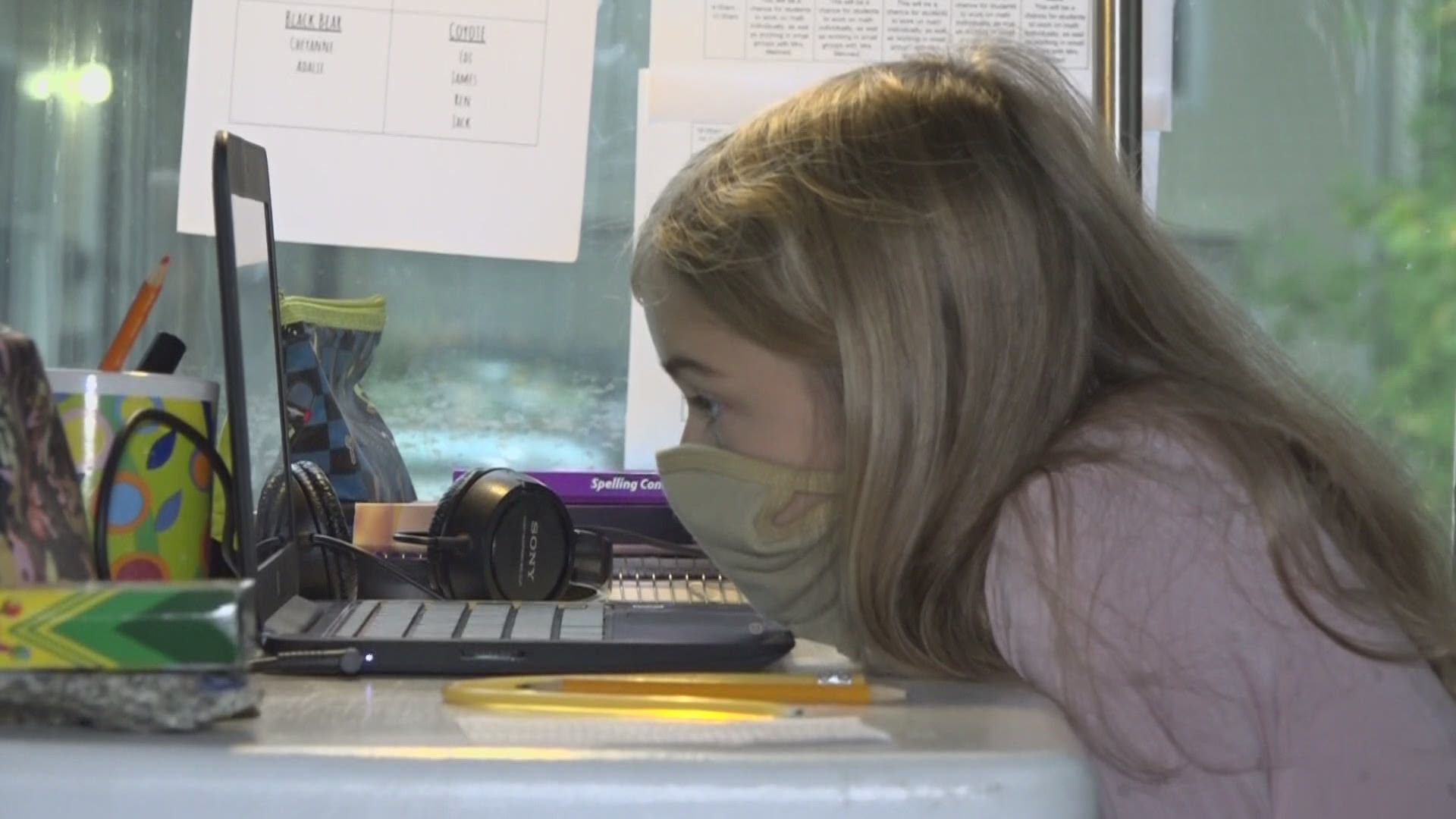BANGOR, Maine — Spending hours in front of a screen can be detrimental to your eye health, having both short and long-term consequences.
Kimberly Allen is an optometrist at Penobscot Eye Care in Bangor. She said she has seen an increase in children at the practice.
Allen explained short term when people spend time on digital devices they don't blink as much as they normally do, which causes people's vision to be less clear.
"Our eyes are starting to turn red, and burn, and water," Allen said.
Excess of blue light affects sleep patterns and causes eye fatigue. Nowadays more people are getting more blue light from the constant use of digital devices.
"In the long term, it could lead to a faster progression of cataracts and macular degeneration," Allen said. "For kids, we want them to get blue light. It's appropriate for eye development, we just don't want that extra blue light from the screen."
She said the combination of being at home for so many hours during the pandemic plus staring at screens with blue light is impacting everyone's vision, including children.
"If we are constantly looking at a close distance our eyes want to develop that way, and so if our eyes are developing to see close, our distance vision can suffer a bit that way ... that happens more in kids because their eyes are still developing," she said.
Allen recommends limiting the hours children spend on screens to avoid near-sightedness or myopia.
"The most important thing actually is that outside time. We know at least an hour a day outside helps promote better eye development and reduces the risk of developing myopia or near-sightedness," Allen said.
"Parents will often say 'yes, there are more headaches' and it seems to be related to spending time on that device," Allen said.
According to a recent study published by the Journal of American Medical Association Ophthalmology, the rates of myopia among young children were three times higher during the pandemic than in the last five years.
"We need to find ways to help our kids take breaks," said Allen.
"We don't want them sitting on a computer all day, we want them outside being kids, having fun, and now that they can see friends again, seeing friends," said Kristen Russell, a patient at Penobscot Eye Care and teacher at Eddington Elementary.
Russells said she has been having more headaches and eye fatigue this past year.
"They've given the teachers double monitors, so we are dealing with our laptop and the monitor next to it, children are spending more time on tablets and on chrome books, so it's a lot," said Russell.
"I tell my patients to follow a 20-20-20 rule, so every 20 minutes, take a 20-second break, look 20 feet away from you, and that gives your eyes a little rest, a little recovery time," said Allen.
Other recommendations for both children and adults include keeping a safe distance from your screen, blinking more frequently, using lubricating drops, taking more breaks, drinking enough water, and sleeping enough hours.
If eye fatigues and headaches persist, you should schedule an appointment with an eye doctor for treatment.
Blue blocking screens or eyeglasses are encouraged for the blue light coming from devices if you tend to spend many hours working from a computer or tablet.
Dr. Kimberly Allen can be contacted for an appointment at Penobscot Eye Care in Brewer at 207-942-2015.

